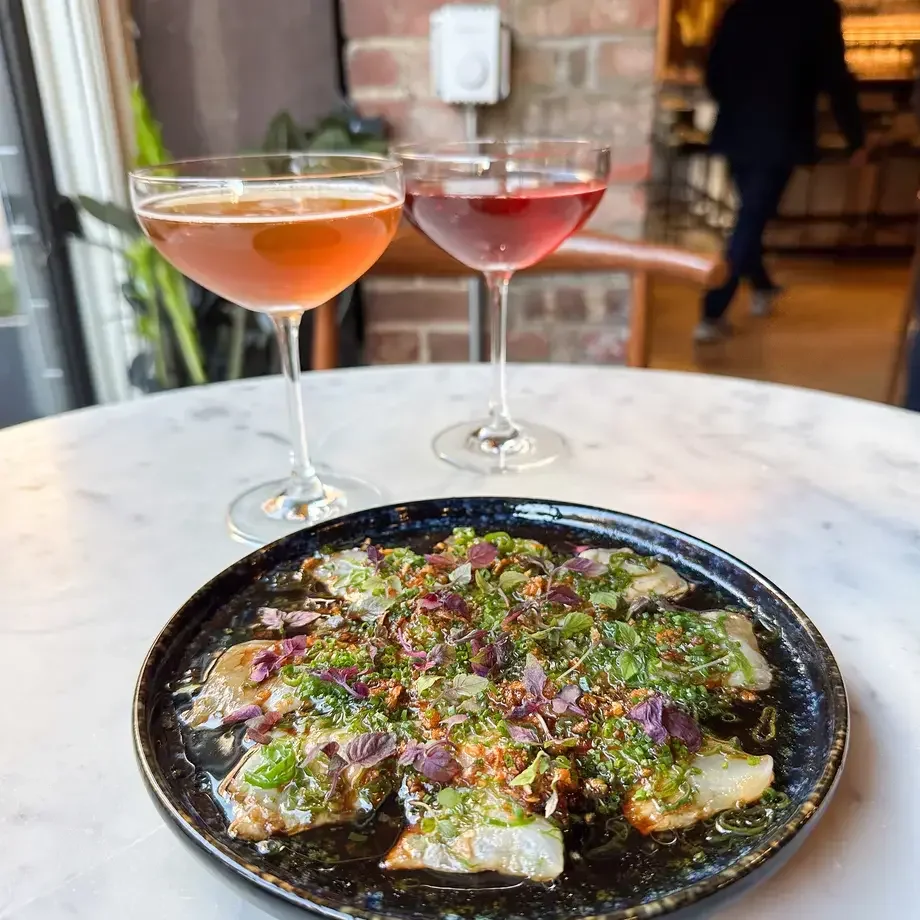Our favourite online blogger Paul Sorgule is back with some more solid advice, this time focusing in on what it takes to become a successful cook.
Sorgule has years of experience working as a line cook, chef and now educator and his straight to the point advice is perfect for anyone working in a kitchen.
There are 15 points listed by Sorgule, 15 points to success that all line cooks should consider while working.
The kitchen profession is one of constant progression and it’s nice to have some of the key factors in sight when planning your career.
KNOW WHERE YOU ARE GOING
Start with the end game – “I want to eventually be an Executive Chef in a 4-diamonf hotel”, or my goal is to “Own and operate a small restaurant with a focus on traditional American cooking”. This is the carrot, this is where your dream position resides, this is your happy place. Now the question is how to get there.
KNOW WHAT YOU DON’T KNOW
Once the end is defined, it will become essential to understand what skills and aptitudes, necessary of those positions, are lacking in your repertoire. It may be technical cooking skills and/or the ability to manage a business, lead people, or build a concept, etc. Knowing what you don’t know is likely the most important part of building your roadmap.
SET A PATH TO GET THERE
What is the absolute best way for you to acquire those skills or aptitudes? Who are the best people to learn from? What is the progression that must be followed to ensure that those skills sink in? How will you know when those skills have become an integral part of your personal brand? It may be classes or even a degree, or it might simply be a strategic plan to work at various restaurants, with certain chefs or managers, and specific environments that are known for mastery of that skill.
STAY HUMBLE AND DETERMINED
Ego without substance is the kiss of death for a chef. Don’t ever give up on your roadmap, but once a skill is mastered know that there is still so much more to learn. You aren’t there yet
FIND A MENTOR
This may be the most important component of your roadmap. Identify the chef, manager, or other professional in the business that cares enough to push you, provide honest critique, help you to adjust and stay the course, and most importantly is there to be an honest coach who will take no prisoners when you stray from the defined course.
PICK YOUR BENCHMARKS
Read, study, visit, network, and find those businesses and people whom you admire and whom you want to emulate. What is it about these individuals or businesses that sets them apart? Learn everything you can about them and build their methods into your roadmap.
CREATE YOUR FOOD PHILOSOPHY AND STICK TO IT
Great chefs are people of principle. Great chefs have a philosophy about food that is essential in building a brand and setting themselves apart from others. It will be your “stakes in the ground” that make you interesting and help to push your career forward. Your philosophy is part of your signature as a chef.
DON’T EXPECT TO LEARN EVERYTHING WHILE ON THE CLOCK
Sorry, if you really want to stay true to your roadmap then you need to commit beyond your posted schedule. Volunteer to help on special events where you might pick up a new skill, sign up to participate in cooking competitions, attend conferences and workshops, offer to come in on your day off to help the chef with inventory, read cook books and management books, and make the commitment to constantly improve. This is an investment in your future!
LISTEN AND OBSERVE
Everyone who works in a restaurant has something to offer. Watch how they work, what unique methods they use, how they interact with others, how they organize their station. It all counts! Every observation will help you solve a problem or complete a task at some point in your career.
LEARN SOMETHING NEW EVERY DAY
This should be your daily objective. Even the smallest detail builds on your marketability. How a person holds a knife, how he or she peels a vegetable, organizes a work station, and prioritizes work; how a server opens a bottle of wine, how the porter holds a mop when washing the floor – every day, learn something new.
BE A TEAM PLAYER
The team that you want to build in the future is the same as the team that you choose to support today as a cook. Be the team player that you want others to be in your kitchen.
MAKE MISTAKES AND LEARN FROM THEM
Mistakes are inevitable, frustrating, and sometimes embarrassing. It’s ok to make them – just don’t make them again. Learn how to prevent the same mistakes in the future and then prepare to teach others when you hold that position of chef.
GIVE BACK
As I have stated in other articles – the sign of a great chef goes beyond the quality of food that he or she is responsible for. The sign of a great chef is one who gives back to cooks, owners, patrons, peers, the industry as a whole, and those who may be less fortunate. Define how you want others to perceive you by being generous.
BUILD YOUR BRAND
Your resume is an outline of your brand. Your brand is how others view you and define why anyone would want to hire you, promote you, support you, buy your food, or work in your kitchen. Know how you want to be viewed and work to build this brand through your daily actions.
STAY REALISTIC
Being realistic means remaining patient. If you want that carrot (the chefs position) then know that it will take time and dedication.
People are not born a chef. The skills necessary to hold the position are acquired through hard work, patience, and exceptional planning. If you really want to become a chef – you can.











